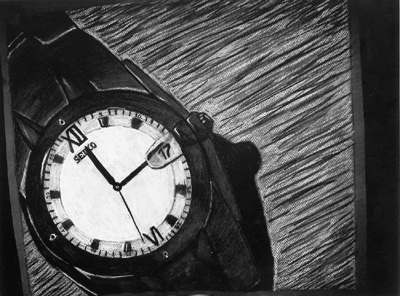All Nonfiction
- Bullying
- Books
- Academic
- Author Interviews
- Celebrity interviews
- College Articles
- College Essays
- Educator of the Year
- Heroes
- Interviews
- Memoir
- Personal Experience
- Sports
- Travel & Culture
All Opinions
- Bullying
- Current Events / Politics
- Discrimination
- Drugs / Alcohol / Smoking
- Entertainment / Celebrities
- Environment
- Love / Relationships
- Movies / Music / TV
- Pop Culture / Trends
- School / College
- Social Issues / Civics
- Spirituality / Religion
- Sports / Hobbies
All Hot Topics
- Bullying
- Community Service
- Environment
- Health
- Letters to the Editor
- Pride & Prejudice
- What Matters
- Back
Summer Guide
- Program Links
- Program Reviews
- Back
College Guide
- College Links
- College Reviews
- College Essays
- College Articles
- Back
Ballistic Expert
Ballistics
Ballistic experts “collect, study, and analyze evidence related ammunition and firearms” as said on wisegeek by Lindsay Kahl. Certain duties that a ballistic expert needs are the skills in finding evidence or writing down research. Not much education is needed when becoming a ballistics expert; the most that is needed is a bachelor’s degree. In addition, training as an intern and completing hands-on activities is important as well. A day in the life of a ballistic expert is hard and confusing. But I like this job because it has to do with forensic science and criminal justice, I’ve always wanted to work with the government in that way and apply science to it.
The main duties for ballistic experts is to figure out what gun was shot in a crime scene, how it was shot, and sometimes even who it was shot by; giving them suspects. “They work with police officers, detectives and even private agencies” also stated on wisegeek by Lindsay Kahl. They have to write reports of evidence that they have found; then they may need to present the evidence in court. Sometimes they have to “work in labs and perform tests on the evidence they’ve found”. They also “have to be on duty 24/7” as said on wisegeek by Lindsay Kahl, mainly because one never knows when there are a crime. It is also important for ballistic experts to “memorize serial numbers to weapons” as mentioned on wisegeek by Lindsay Kahl. It’s a hard job, but it is also very interesting.
Although the job is difficult, the education needed is simple. Ballistic experts sometimes just need a “bachelor’s degree in criminal justice, criminology or forensic science. “Hands- on practice experience can also be important, along with the knowledge of physics, math, chemistry, and firearms” as stated on education-portal.com. “Three years of experience working as a forensic apprentice specializing in firearms analysis” is needed as well, as said on education-portal.com. But sometimes a degree isn’t even needed. Officers or detectives that have had experiences in the government and know enough about firearms can also join this field.
Forensic ballistics analysis is a specialty within forensic science. Ballistics experts may examine a crime scene themselves, or they may simply analyze evidence submitted to them by other crime scene investigators, detectives or police officers. Forensic ballistic experts specialize in looking at anything that has to do with firearms. Additionally, “forensic ballistics experts may be involved in crime scene mapping. These crime scene maps can be used to create diagrams for police reports or courtroom presentations. Ballistics experts may be called to lift fingerprints from spent shell casings or help collect DNA samples from expended rounds” according to Lindsay Kahl on wisegeek.com Ballistics experts can expect to work standard business hours, but “they may be called to a crime scene at any hour” as said on widegeek.com by Lindsay Kahl. Often, the scenes they investigate are pretty hard to even look at, due to the nature of the crimes they respond to.
Many times, kids grow up wanting to be teachers or doctors and I could admit I was one of them until I ran across this job. Being a ballistic expert is a big responsibility. There is a lot of knowledge that is needed for the job and along with that it is a job that requires you to be on duty 24/7. Aside from the stress and memorization that is needed, it’s always been a fascinating field that I enjoy and a job I’d like to purse in the near future.

Similar Articles
JOIN THE DISCUSSION
This article has 0 comments.